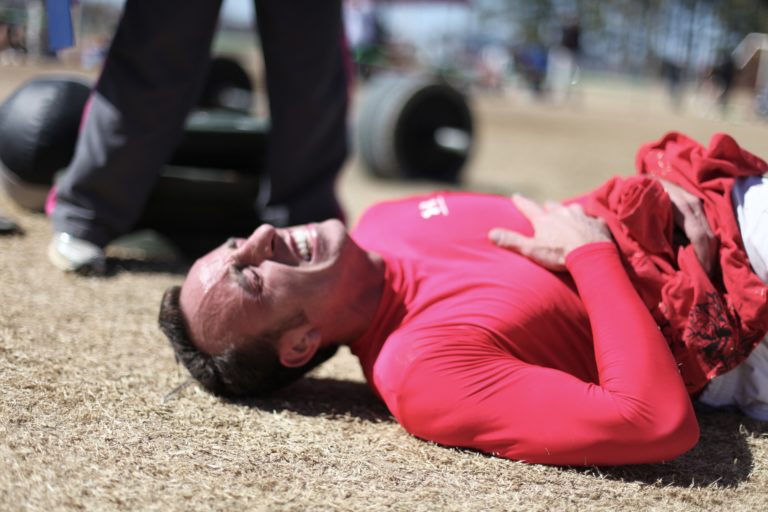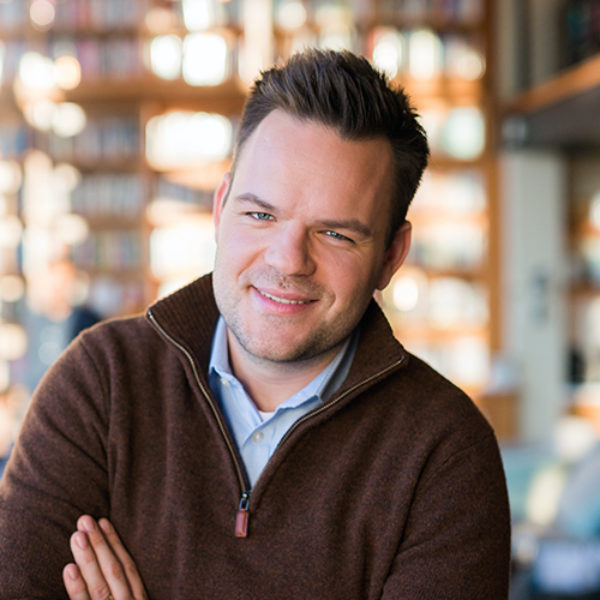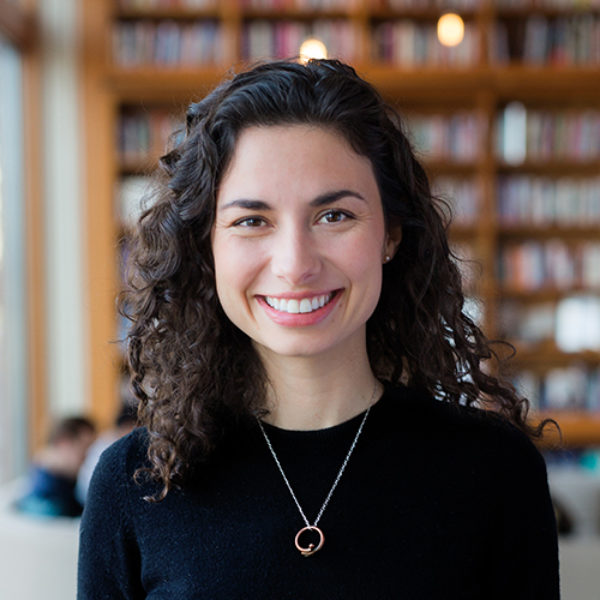
Image by Tom Woodward.
How We Gather (Part 1): The Theology of CrossFit
There is a crisis of isolation in America.
Recent decades have seen a steep rise in solitude, so that one in four Americans now have no one to confide in. Statistics suggest our relational fabric is tearing apart. With 3,500 churches closing each year, it’s easy to fear the demise of meaningful community.
But are we looking in the right places? Our research at Harvard Divinity School has revealed a host of growing organizations that build community and transform lives — in unexpected ways. These groups, while largely secular, consistently mirror traditional religious functions. Some of the more well-known are described — only half-jokingly — as “cult-like.”
The most notorious is CrossFit. The fitness phenomenon that boasts over 13,000 affiliate “boxes” (gyms) is wholly self-aware of the religious nature of its work. Co-founder Greg Glassman sees himself as shepherd to a flock of workout devotees, and describes CrossFit as “a religion run by a biker gang.”
Participants agree.
Claire Koch is the co-host of Girls Gone WOD, a podcast aimed at female CrossFitters. She is clear that the strong community of support and accountability is what keeps her coming back. When she first moved to Denver she and her husband knew nobody. After a month of social isolation, they joined a CrossFit box not knowing what to expect. It quickly turned into the center of their social life:
“CrossFit became our whole group of friends. It was like a little community incubator.”
But CrossFit is more than a group of friends. Koch credits getting back into the box as central in overcoming her struggle with postpartum depression:
“I did a 12-week intensive therapy program and it helped somewhat, but as soon as I stepped back into the box it was like night and day.”
These kinds of stories are common among box members. CrossFit is as much a community of care as it as a place to perfect your squat. Members drive each other to the hospital, help get each other jobs, and raise money for each other in times of need. At DogTown CrossFit in Los Angeles, where leaders have hosted “Crush Cancer” fundraising workouts for box members over the last five years, the community has raised over ,000 for cancer research.

As with any community, CrossFit boxes don’t always live up to their values. The hyper-competitive and male-dominated leadership of the network can create an unwelcoming culture for women. Koch’s podcast intentionally creates a space for women CrossFitters to find mutual support and inspiration and to share their testimonies of transformation.
Over the last three years, women have spoken of friendship, body image, grief, economic hardship, and much besides. Together with her co-host Joy Zarra Parrish, Koch loves that she’s giving women in CrossFit a chance to share their core values — even down to the nitty-gritty of prioritizing a budget to buy leggings instead of getting a new hairdo!
Each year, the faithful gather for the CrossFit Games, a chance for the best CrossFit athletes around the world to compete against each other. It’s not a stretch to recognize elements of pilgrimage among the many who travel from far and wide to bear witness to their feats of strength. Koch says:
“One of the reasons that CrossFit sucks you in, and is so relatable once you’re in it, is because you look at the workouts in the Games and, even though you can’t perform at that level, you know those moves. You know what it’s like to go to that deep dark place. You recognize that facial expression.”

If CrossFit-as-church seems too farfetched to imagine, Rev. Michael Plank disagrees. The pastor of First Presbyterian Church of Hudson Falls, Plank and his wife opened Underwood Park CrossFit not long after moving to the small upstate New York town:
“I opened a box because I could see how CrossFit was making people’s lives better, which is the very same reason why I went into ministry.”
He envisions the box as a community that meets the human needs for connection, spirituality, and physical health — a place where participants strive to live into the fullest expressions of humanity in the bodies they’ve been given. Plank and his team are out to produce healthier, happier, more centered and productive members of society, and they don’t just rely on working out together to make it happen. Members take part in service work and, for those who take class on Friday, engage in Bible study and prayer.
Though it’s unusual to see a CrossFit coach who is also an ordained minister, the work of formation is consistent in many boxes. CrossFit’s director of training Dave Castro explains that CrossFit “[gives] people a new outlook on life — how to train, how to eat, how to live. It’s a truly effective program for changing people’s lives.” How you show up in the gym is how you show up in life.
Unlike the elite athletes who compete in the annual Games, Plank’s box is geared toward clients who are often unfit, overweight, and uneasy about their bodies. He sees theological questions of worthiness underlying this malaise:
“Many of the people who come in have a difficult time loving themselves or believing that they contain inherent goodness. What they find in community with others is an inner strength, courage, self-care, and self-love that they don’t know is there. We don’t give that to them. We just create an environment where they can discover and nurture it.”
After six months, Plank reports, members of the box have never felt so confident:
“They view themselves as badasses, people who have intrinsic value beyond their own capabilities. And that’s a real transformation.”

A minister in the Reformed tradition, Plank uses the language of sanctification and utter depravity to explain the theology of CrossFit:
“We come in with our own brokenness and we are on a journey toward healing. It’s an everlasting journey to be faster, stronger, leaner — but also more kind, more patient.”
Indeed, Plank suggests that Calvinism and CrossFit may be particularly compatible:
“No matter how good you are, you never don’t need grace. And no matter how fit you are, you’re never at a point where you don’t miss reps. That’s just gonna happen!”
One thing is clear: CrossFit is shaping the way people show up in their lives and the lives of others. When she was giving birth, Claire Koch pushed herself through labor by remembering how CrossFit had pushed her body beyond its prior limits. And Constance Tillett of Brooklyn — one of the oldest CrossFitters at 78 — remembers how her box members carried her through grief:
“When my husband died and the word spread, in my wildest dreams I never thought they would be there with me, and they were there with me to his grave site. And they are still with me and they will be with me till I leave here. South Brooklyn CrossFit is my family, my children — and I mean it with the bottom of my heart.”
About How We Gather
America is changing. Millennials are less religiously affiliated than ever before. Churches are just one of many institutional casualties of the internet age in which young people are both more globally connected and more locally isolated than ever before. Against this bleak backdrop, a hopeful landscape is emerging. Millennials are flocking to a host of new organizations that deepen community in ways that are powerful, surprising, and perhaps even religious. With this monthly series, we invite you to join us in considering how Millennials are changing the way we gather:
»Part 1: The Theology of CrossFit
» Part 2: SoulCycle as Soul Sanctuary
» Part 3: The Dinner Party


